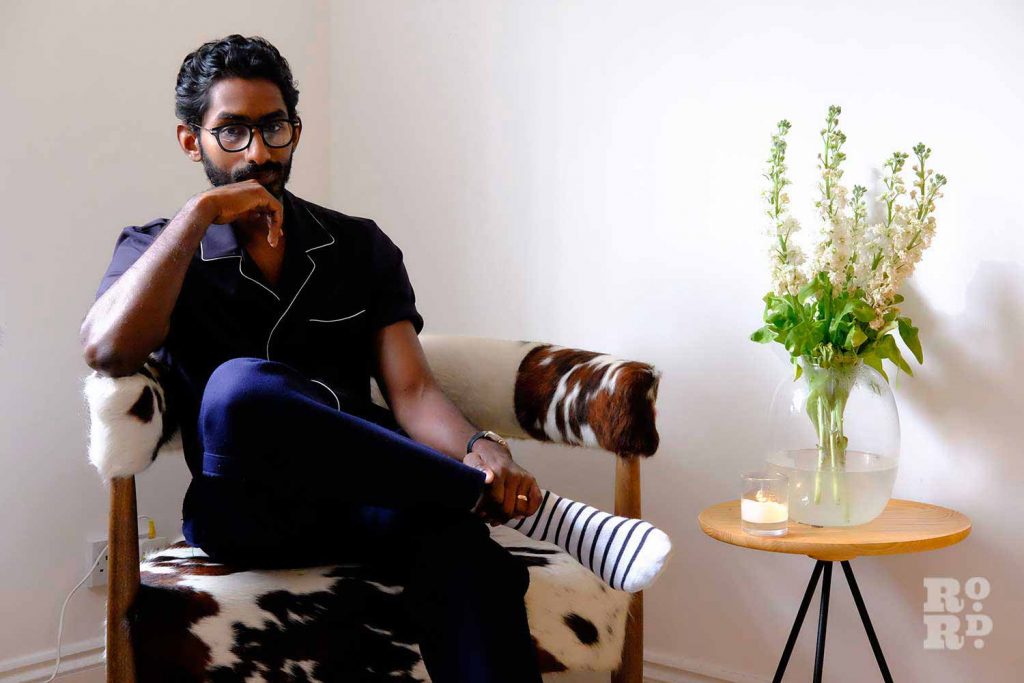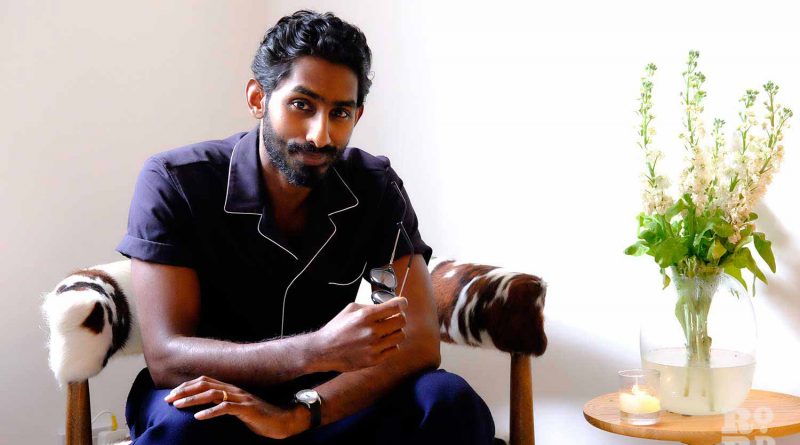Bow filmmaker Aaron Christian on the privileged world of internships
Bow-based filmmaker Aaron Christian, 34, is a born and bred East Londoner. His debut short film, The Internship, is a semi-autobiographical picture about race, class, and privilege within the publishing industry has been screened at the Genesis Cinema.
The Internship marks a culmination for Christian. Shot over three days across East London, not only was the film largely based on his own experiences, it also provided a new creative challenge after a decade in the thick of the fashion industry.
Much like the premise of the film, Christian bumped into the then editor of Esquire while working a dead-end retail job. The chance meeting led to an internship, and Christian’s career has gone from strength to strength since then. He has shot for household fashion brands in countries all over the world. But his base has always been East London, and he has never lost sight of the blessings he’s had.
The film examines the dynamics of interning in the publishing industry. Christian only has good things to say about the people he’s met and worked with. As someone who ‘made it’ he simply feels a responsibility to showcase the struggles of those who didn’t.
‘There’s a narrative that if you’re not willing to do an internship then you probably don’t have what it takes,’ Christian says. ‘I think it was important to show another side as to why some people may not be able to work in an internship for so long for free or for a lower wage.’
When Christian himself was an intern it wasn’t uncommon for peers to have to drop out before a chance to progress presented itself. Talent, graft, and a sprinkling of luck gave Christian the breaks he needed, but he maintains a measured view of the industry.
‘I’ve worked hard,’ Christian says, ‘but I also totally understand there have been loads of opportunities that came at just the right time.’
Christian was born and bred in East London, but his family background is Malaysian-Indian. His formative years were in Stratford, and the diversity he experienced growing up has stuck with him. ‘Just being raised in that community you get to see so many different cultures and ways of life, especially when you’re young and the world hasn’t shaped you,’ he says.
Christian’s own experiences in fashion have translated into a lush, vibrant visual palette. He wanted The Internship to be an expressive project. ‘I wanted to showcase East London in a really beautiful, cinematic way.’
The Internship channels that diversity into its exploration of race, class, and professional cliques, both in the subject matter of the film and how it was made.
The film, whose cast and crew are suitably diverse in skillset and background, is itself a statement about diversity in the film industry. Although traditionally a visual filmmaker, it was important to Christian that he be the one telling the story.
He hopes it sparks a conversation. Christian doesn’t talk in terms of heroes and villains. He talks in terms of broken systems and awkward conversations that ought to be had. It’s not black and white. It’s worse than that, it’s shades of grey.
Christian recalls that when he was interning opportunities often went to relatives of those in positions of power. Instead of going to an external applicant, a role might be offered to a CEO’s nephew or a senior manager’s son. Christian reserves judgment as he recounts this. He understands. He would do the same, he says. But that doesn’t mean it shouldn’t be talked about.
‘Those conversations are so uncomfortable but it’s important to have them,’ Christian says. He believes that the honesty required of those conversations starts with the filmmaker. ‘If I stay true to what I want to say and I feel what I’m saying is honest, then you can slowly start having those conversations.’
On screen and off, Christian obviously sees dialogue as essential to filmmaking. Different skills, backgrounds, and perspectives come together to make something greater than any one person could do alone. And then, when people go to see it, they can be exposed to something new, something challenging.
‘I think that’s the reason I fell in love with filmmaking,’ he says. ‘It’s one of the mediums where you can continuously improve and learn from. You can always approach your work from a different angle.’
Filmmaking is diverse by nature; so many skills are required. When Christian was young it was all about visuals, the cinematography and the framing. Then he began to learn about lighting. Then sound design. Then set design, and styling, and writing.
Even if you’re not a natural at one aspect (Christian is very modest about his writing ability) studying it improves your overall understanding of the craft.
Christian clearly lives and breathes filmmaking. He speaks with keen, articulate interest about how much there is still to learn. It excites him. For Christian the teamwork built into the process is a source of strength, and in this day and age almost an act of defiance.
‘That collaborative experience does kind of run against how the world’s working now, where everything is so immediate nowadays,’ he says.
‘You see stuff on Instagram that you wouldn’t remember next week, whereas films are a massive collaborative experience. It takes a lot of effort and time, but they can be evergreen in a way.’
It’s appropriate that The Internship is being debuted by Genesis cinema at its first ever Fragments Festival. The festival aims to champion inclusivity in film, giving a platform to those underrepresented at major film festivals.
Christian sees it as a massively important edition to the circuit, both for filmmakers and audiences. ‘On Vimeo or Instagram you choose what you like and you’re fed that feed,’ he says. ‘It can just be a bubble.’ Carefully curated festivals expose you to the unfamiliar and inspire new outlooks on both film and the subjects they explore.
Being screened at his local cinema is wholesome ending to this chapter in Christian’s story. Although he is excited to see the response, he’s already at peace with the project and looking forward.
‘I felt my job as a filmmaker was to create a piece of art, put it out there, obviously tell a story I identity with and believe in, and then once it’s out in the world it kind of doesn’t really belong to you.’
Whatever people make of the film, he hopes it will inspire young filmmakers to make their own projects. The only major Asian filmmaker Christian had to look up to when he was growing up M. Night Shyamalan. In his own small way he hopes the film says to someone, You can do this too.
‘You need people to pave the way a little bit, and also bring the next generation through,’ Christian says. ‘When you do get more people in the industry you just get a wider variety of opinions and stories and content, and that’s just better.’
You can follow his work on Instagram and at aaronchristian.co.uk



